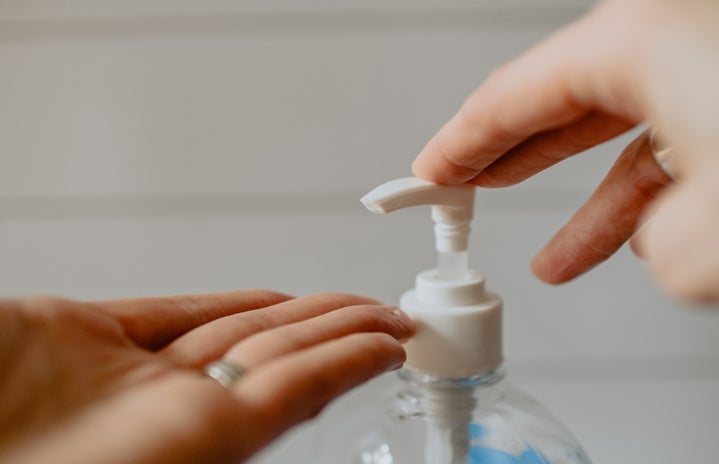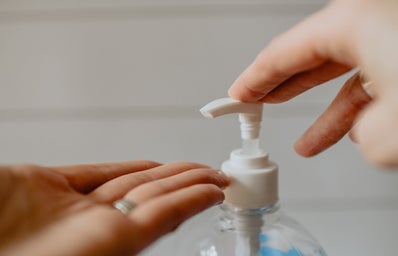“You got eggs-muh?”
Most of those who grew up in the 2000s know this classic vine. But, that’s usually the extent anyone has ever heard about eczema. Eczema, also known as atopic dermatitis, is an itchy rash made up of patches of dry and inflamed skin, the Mayo Clinic states on its site. It is a chronic disease and affects more than three million Americans each year. It’s not contagious, and it seems that eczema education is unfortunately following suit, making my decision to write about my experience all the easier.
I first developed eczema on my wrists as a sophomore in high school. I didn’t know how to get it under control, so those annoying bumps planted their flags and laid claim up to the knuckles on my hands. As if algebra two wasn’t hard enough, I have vivid memories of sitting in class, working with my group on the assigned problems and struggling to keep my jacket sleeves over the itchy sores, embarrassed that a fellow classmate might point it out. I thought if I just kept them covered, they would eventually go away on their own accord. Out of sight, out of mind, right?
When that tactic crashed and burned, I tried prescription creams like Triamcinolone Acetonide (What a mouthful!), but the rashes weren’t giving way. The frustrating thing is that you need to try applying ointments for about a week to see if there’s any difference, as it takes a while to figure out which one works while you wait for the medication to kick in. I finally discovered Cortisone, an over-the-counter skin cream that comes in a standard first aid kit. This is what I’ve been using as part of my nightly routine ever since high school.
Keeping Up Your Routine
Once you find this treasured routine, stick with it. I cannot stress that enough. Even breaking it for one day can cause an eczema resurgence. I’m guilty of it too and still have my flare ups. A few days ago, I saw one of my friends from high school at a local coffee shop. He offered me his signature greeting, a fist bump. Little did he know that there were scaly rashes camped out around the dry skin of my knuckles. I awkwardly reciprocated with my thumb at the top of my first rather than the usual sideways. It felt like the beginning sequence of a commercial that’s in black-and-white before someone starts the medication that makes color magically return. How could I have brought ROY G BIV back into my life sooner? Not skipping out on applying Cortisone to the tops of my palms and all over my wrists. It’s never worth the few seconds of sleep or time on your phone you’ll get, and I regret it every time!
The Temperature Factor
Eczema’s effects can also be heightened by changes in temperature. During my family’s recent summer vacation to San Francisco, my eczema was the worst it’s ever been in the five years I’ve been dealing with it. My body couldn’t cope with the sudden switch from Miami humidity to Californian chills with zero moisture in the air, so my dry skin was ripe for the taking. It all climaxed when driving to Yosemite, thanks to hours spent in our rental car with no air conditioning. The eczema had spread to cover my knees, most of my legs and up my forearms, and I hadn’t brought enough Cortisone with me because I didn’t have the proper travel size for the plane. The gift shop lotion wasn’t exactly revered by dermatologists, and that was all I had to use until arriving back to the sunshine state. I learned my lesson on that front, and now know that both drops and peaks in temperature can be detrimental to my skin. Being careful and being ready in new environments is key.
The Takeaways
Besides finding a moisturizing cream that is right for your skin, keeping your hands off the rashes helps as well. I know firsthand how tempting it can be to give it a scratch, but it’s only going to make it spread faster and stick around rent-free even longer. When in doubt, see your dermatologist for their medication recommendations that can be catered directly to you.
A few final disclaimers for those who’ve made it this far: I’m not a doctor and don’t plan on ever being one, so take my words with a grain of salt. What works for me might not work for someone else, and that’s okay.
Armed with a routine that’s right for you, have confidence that you can face eczema head on, especially as we approach these dryer months of fall and winter. I wish the best for you and your skin!


